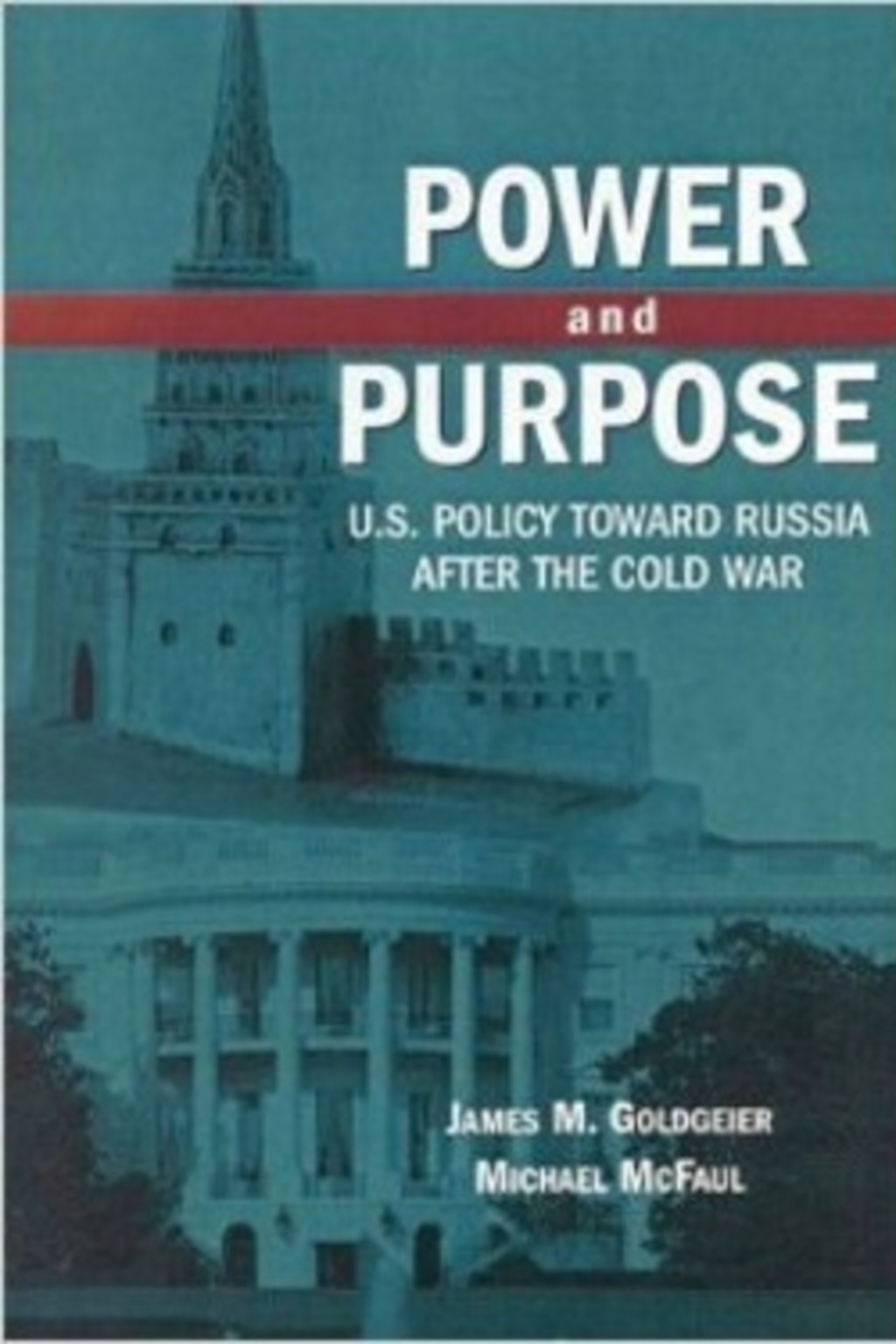Power and Purpose
U.S. Policy Toward Russia After the Cold War

- Publisher
- Brookings Institution Press
- Release Date
- October 2003
- Pages
- 450
- ISBN
- 0815731736
Russia, once seen as America’s greatest adversary, is now viewed by the United States as a potential partner. This book traces the evolution of American foreign policy toward the Soviet Union, and later Russia, during the tumultuous and uncertain period following the end of the Cold War. It examines how American policy-makers—particularly in the executive branch—coped with the opportunities and challenges presented by the new Russia.
Drawing on extensive interviews with senior U.S. and Russian officials, Council Fellow James Goldgeier and the Hoover Institute’s Michael McFaul explain George H. W. Bush’s response to the dramatic coup of August 1991 and the Soviet breakup several months later, examine Bill Clinton’s efforts to assist Russia’s transformation and integration, and analyze Geroge W. Bush’s policy toward Russia after September 11 and the war in Iraq transformed international politics. Throughout, the book focuses on the benefits and perils of America’s efforts to promote democracy and markets in Russia, and to reorient Russia from security threat to security ally.
Reviews and Endorsements
If there is one book to read on what shaped American policy toward the Soviet Union in its last years and Russia throughout the last decade, this is it. It offers more than a narrative; it offers an explanation within a very useful conceptual framework. It understands that policy is not made either in a vacuum or by simple bureaucratic imperatives. It is the product of ideas and real people who embrace those ideas. The pull between those who believed we could and should transform Russia and those who focused principally on the security dimensions of the relationship has, to differing degrees, shaped the policies of the first Bush, Clinton, and current Bush administrations. That reality, and the lessons to be learned from it, are thoroughly explored in this superb book.
Ambassador Dennis B. Ross
Power and Purpose provides the best coverage of this crucial issue that I have read. Combining a thorough narrative with incisive analysis, Goldgeier and McFaul present clearly the making of U.S. policies toward Russia in recent years—where we got it right and where we should have done much better. A real contribution and a good read as well.
Anthony Lake, former national security adviser